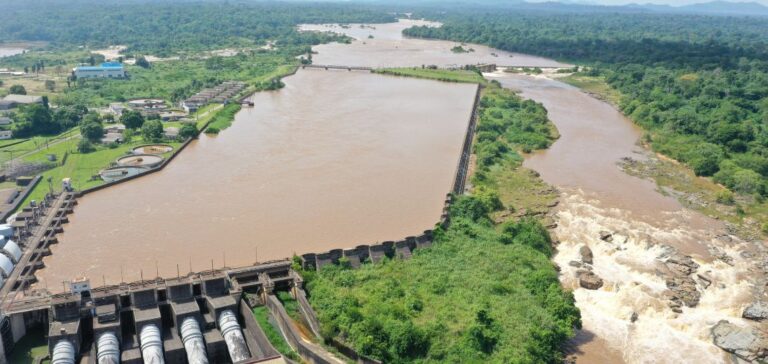Savannah Energy PLC, a British independent energy company, has signed a Memorandum of Understanding (MOA) with the Government of the Republic of Cameroon for the development of the Bini a Warak hydroelectric project.
Bini Project: first electricity targeted in the 2027 to 2028 window.
The project, located in the northern Adamaoua region of Cameroon, is expected to produce 75 MW of clean, stable and affordable energy for the northern region of Cameroon. It is intended to meet local demand for electricity and to support energy-intensive industrial projects in the region, particularly in the cement and metallurgy industries.
The Bini project is expected to increase the power generation capacity of Cameroon’s northern power grid by more than 50%. There is also the possibility of distributing electricity in the southern power grid of Cameroon at the end of the interconnection of the northern and southern power grids, financed by the World Bank and planned by the government for 2026.
The project involves the construction of a dam, reservoir, tunnels, power plants, substations and a 225 kV transmission line connecting the project to the northern Cameroon power grid. The project is expected to be developed on an independent power project basis, with project approval expected in 2024 and first electricity targeted in the 2027 to 2028 window.
Under the MOA, Savannah Energy plans to complete existing feasibility studies and work with energy industry authorities and development finance institutions to finalize the development, financing and resumption of construction of the Bini project. The company plans to finance the project through a combination of its internally generated cash flow and project-specific debt.
The Bini a Warak project: a major initiative to expand Cameroon’s electricity capacity.
His Excellency Gaston Eloundou Essomba, Cameroon’s Minister of Water and Energy, said the government is delighted to partner with Savannah Energy to provide clean, affordable electricity to support industrialization projects in northern Cameroon. The Bini project will solve the current electricity shortages caused by the hydrological deficit of the Ladgo Dam and reduce the consequent dependence on expensive thermal electricity in the region.
The partnership with Savannah is in line with the government’s long-term master plan “Vision 2035” to increase the country’s electrification and the National Development Strategy 2020-2030. As a government, they will provide all the support necessary to enable Savannah to deliver the first electricity from this exciting project in the 2027 to 2028 window.
The Bini a Warak hydroelectric project is a major initiative that will contribute significantly to the expansion of Cameroon’s electricity capacity. This partnership between Savannah Energy and the Cameroonian government represents a shared commitment to clean, affordable energy production while meeting the growing need for electricity in the northern region of the country.






















